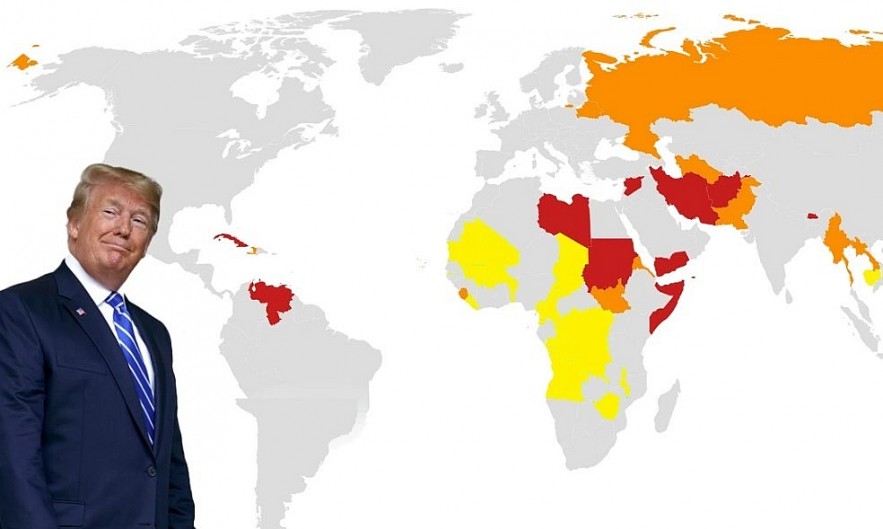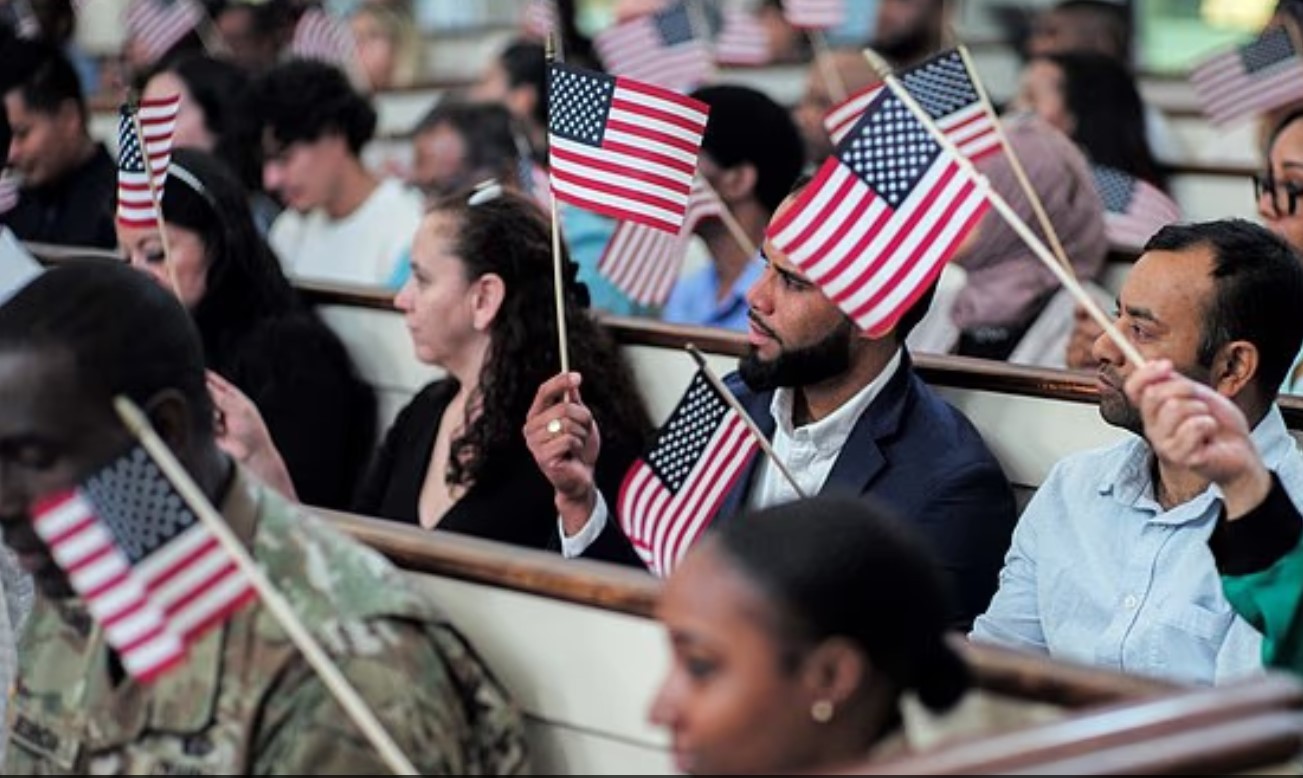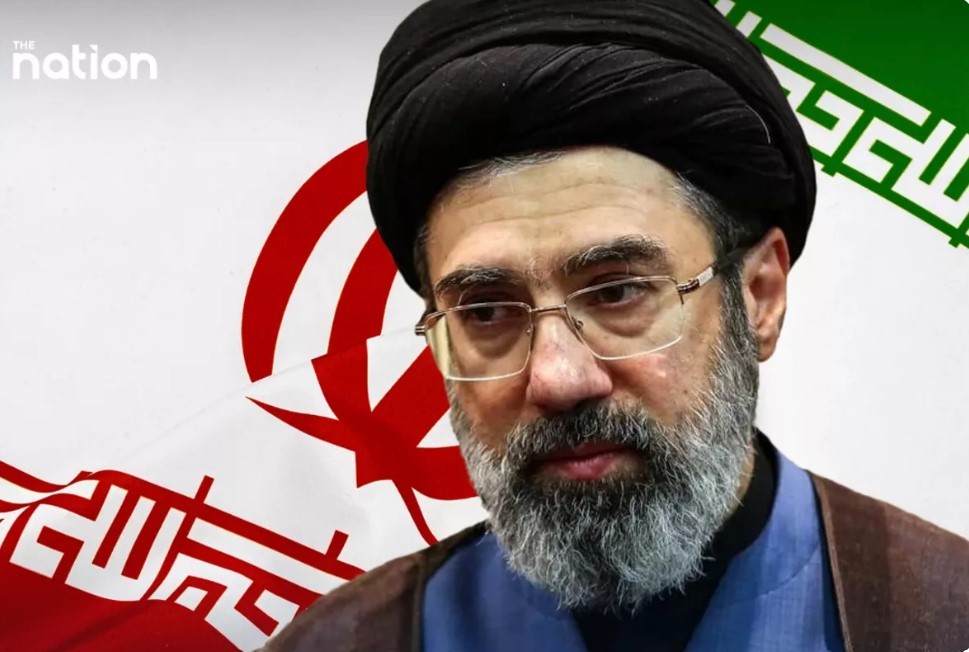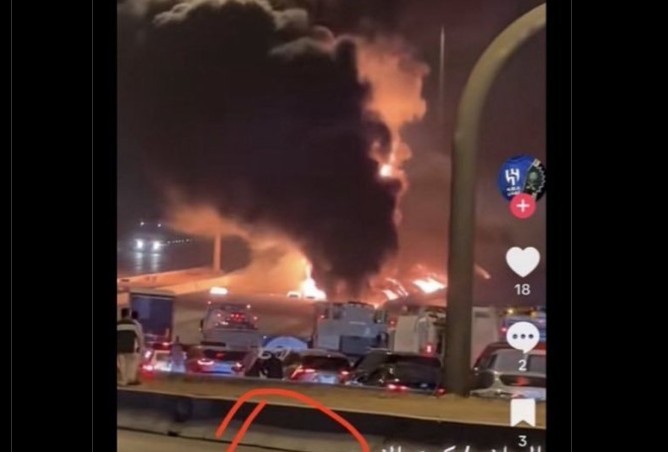Trump Travel Ban 2025: Full List of Banned Countries & Key Facts
 Latest France Restrictions: New UK Travel Ban Amid Omicron Surge Latest France Restrictions: New UK Travel Ban Amid Omicron Surge |
 Trump’s New Travel Ban: Full List of 43 Restricted Countries and What It Means for You Trump’s New Travel Ban: Full List of 43 Restricted Countries and What It Means for You |
 |
| Trump Travel Ban 2025 |
On June 4, 2025, U.S. President Donald Trump signed a new executive proclamation that immediately barred nationals from 12 countries from entering the United States.
The move revives one of his most polarizing immigration policies from his first term and signals a hardline stance in his return to political prominence.
Below is a full breakdown of the affected countries, the rationale behind the move, key exceptions, political implications, and what happens next.
Full List of Countries Under Total Travel Ban
Under the 2025 executive proclamation, nationals from the following 12 countries are barred from entering the United States:
-
Afghanistan
-
Burma (Myanmar)
-
Chad
-
Republic of the Congo
-
Equatorial Guinea
-
Eritrea
-
Haiti
-
Iran
-
Libya
-
Somalia
-
Sudan
-
Yemen
Citizens from these countries are banned from entering the U.S. for all visa types, including business, tourism, student, and family reunification.
Countries Facing Partial Travel Restrictions
In addition to the full ban, seven other countries are subject to partial restrictions. These may affect certain types of visas or impose enhanced screening measures:
-
Burundi
-
Cuba
-
Laos
-
Sierra Leone
-
Togo
-
Turkmenistan
-
Venezuela
These restrictions may apply to government officials, certain visa categories (such as B1/B2 or F-1), or travelers whose home countries fail to meet updated U.S. vetting standards.
Why Were These Countries Targeted?
According to the Trump administration, these countries were selected based on the following criteria:
-
Inadequate identity management systems (e.g., biometric data sharing, passport integrity)
-
Limited cooperation with U.S. law enforcement and immigration agencies
-
Significant terrorist presence or affiliation
-
Frequent visa overstays and fraudulent entries
The administration emphasized that the decision was based on security data, not religion or ethnicity. However, civil rights organizations argue that the selection disproportionately affects Muslim and African-majority nations.
The Historical Background
Trump’s 2025 travel ban echoes his controversial “Muslim Ban” initiated in 2017:
-
In 2017, Executive Order 13769 barred entry from seven Muslim-majority countries, triggering mass protests.
-
After multiple revisions and lawsuits, a narrower version was upheld by the Supreme Court in 2018.
-
In 2021, President Biden rescinded the ban on his first day in office.
-
Now in 2025, Trump’s renewed ban is broader in scope and reinstates the policy under a revised framework.
Exceptions and Waivers
While the ban is extensive, some individuals may still qualify for entry under specific conditions:
-
Lawful permanent residents (Green Card holders)
-
Dual citizens traveling on a passport from a non-banned country
-
Visa holders already inside the U.S.
-
Diplomats and employees of international organizations
-
Individuals who qualify for a waiver due to humanitarian need, public interest, or hardship
Each waiver is evaluated on a case-by-case basis and requires substantial documentation.
Political and Legal Reactions
Supporters of the ban argue that:
-
It strengthens national security by preventing entry from high-risk countries.
-
It encourages other nations to cooperate with U.S. intelligence standards.
-
It reduces the risk of future domestic terrorism or attacks.
Opponents claim that:
-
The ban revives discriminatory policies and violates constitutional protections.
-
It disproportionately targets Muslims and Black-majority nations.
-
It causes unnecessary harm to families, students, and refugees who have no ties to extremism.
Legal experts expect lawsuits to challenge the ban in federal courts. Advocacy groups are preparing legal briefs to argue that the policy violates civil rights and immigration statutes.
Impacts on Immigration and Global Relations
Immigration Delays: Thousands of visa applications are expected to be suspended or rejected. The ban will likely disrupt family-based immigration and asylum requests.
Economic Impact: U.S. employers in healthcare, tech, and academia may face shortages due to reduced access to foreign talent from banned nations.
Diplomatic Fallout: Several countries have condemned the ban. Iran, Somalia, and Sudan issued statements calling the ban “xenophobic.” African Union leaders criticized the order as discriminatory and warned it would damage relations with the U.S.
What’s Next?
The travel ban takes effect immediately. However, the policy may face the following developments:
-
Federal courts may grant temporary injunctions.
-
Advocacy groups could pressure Congress for legislative action.
-
Future administrations may overturn or amend the policy depending on political shifts.
Frequently Asked Questions (FAQs)
1. Does the ban affect U.S. citizens with family in the listed countries?
Yes. U.S. citizens may be unable to sponsor relatives from banned countries unless they qualify for an exception or waiver.
2. Can someone with a valid visa from one of the listed countries still enter the U.S.?
Not necessarily. Even valid visa holders from banned countries may be denied entry unless they fall under an exempt category or receive a waiver.
3. Is this a Muslim Ban?
The administration denies this characterization. However, several of the banned countries have Muslim-majority populations, and critics argue the ban disproportionately targets those groups.
4. How can someone apply for a waiver?
Waiver requests are processed through U.S. embassies and consulates. Applicants must demonstrate undue hardship, a lack of security threats, and that their entry would serve U.S. interests.
5. How long will the travel ban last?
There is no specified end date. The order remains in effect until rescinded or revised by a future executive action or court decision.
Conclusion
Trump’s 2025 travel ban has reignited national debate over immigration, security, and civil liberties. Supporters view it as a necessary measure to safeguard the country. Critics see it as a discriminatory policy that echoes the past and undermines America’s values.
As the legal and political landscape evolves, the final fate of the ban will likely be decided in courtrooms and future elections.
























